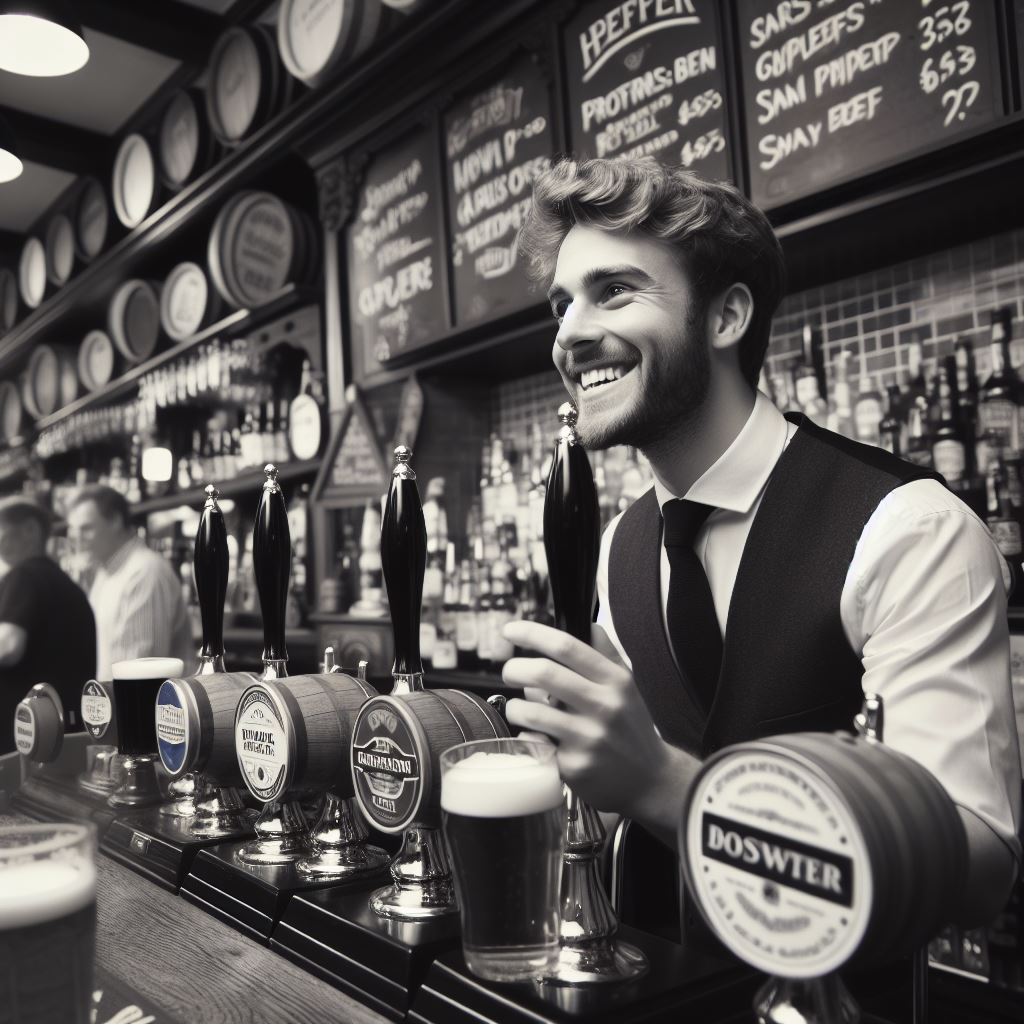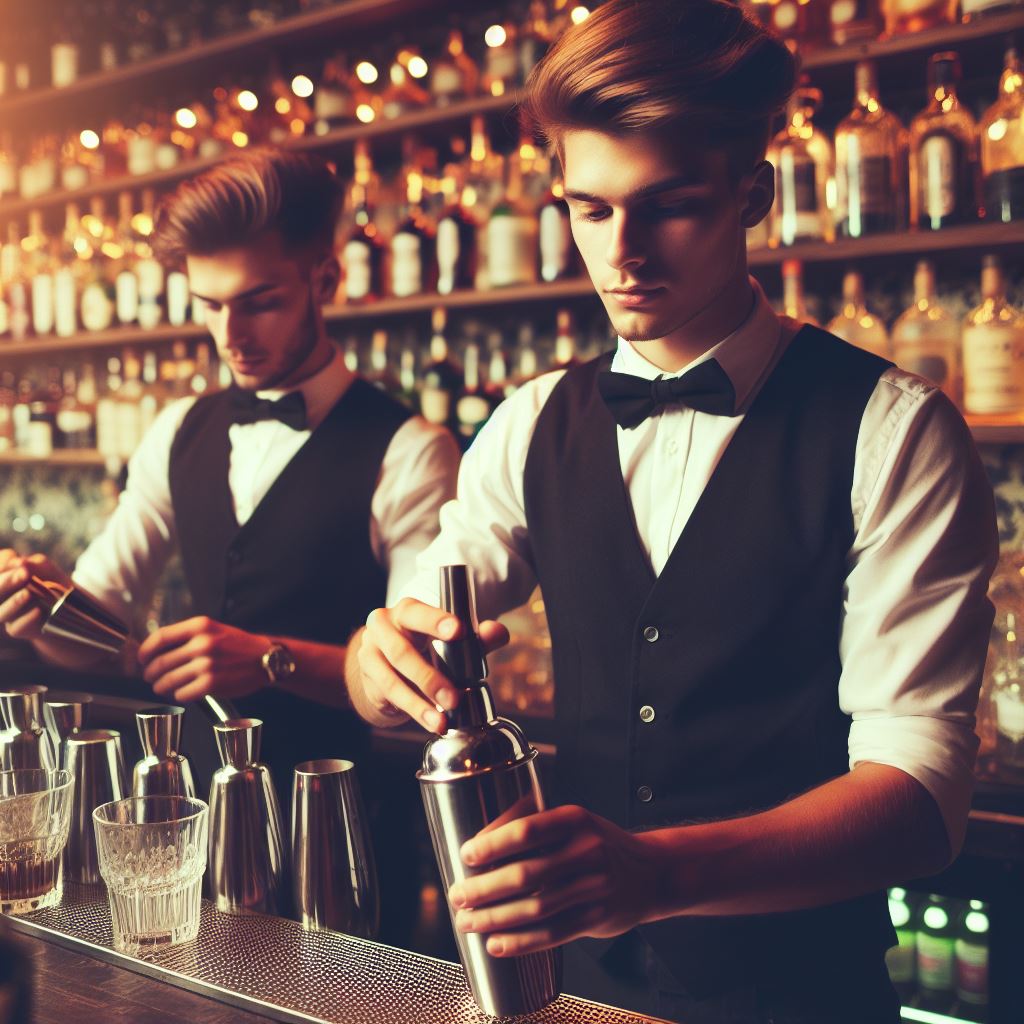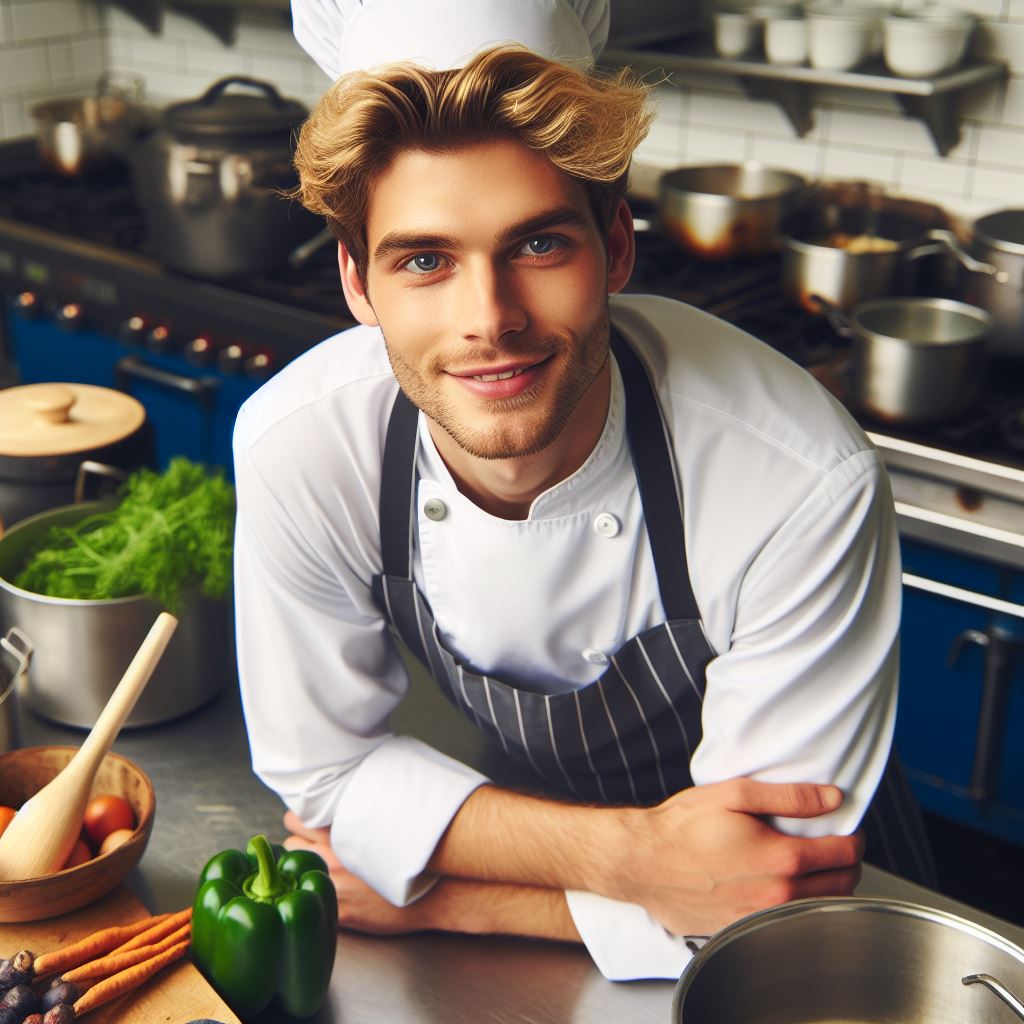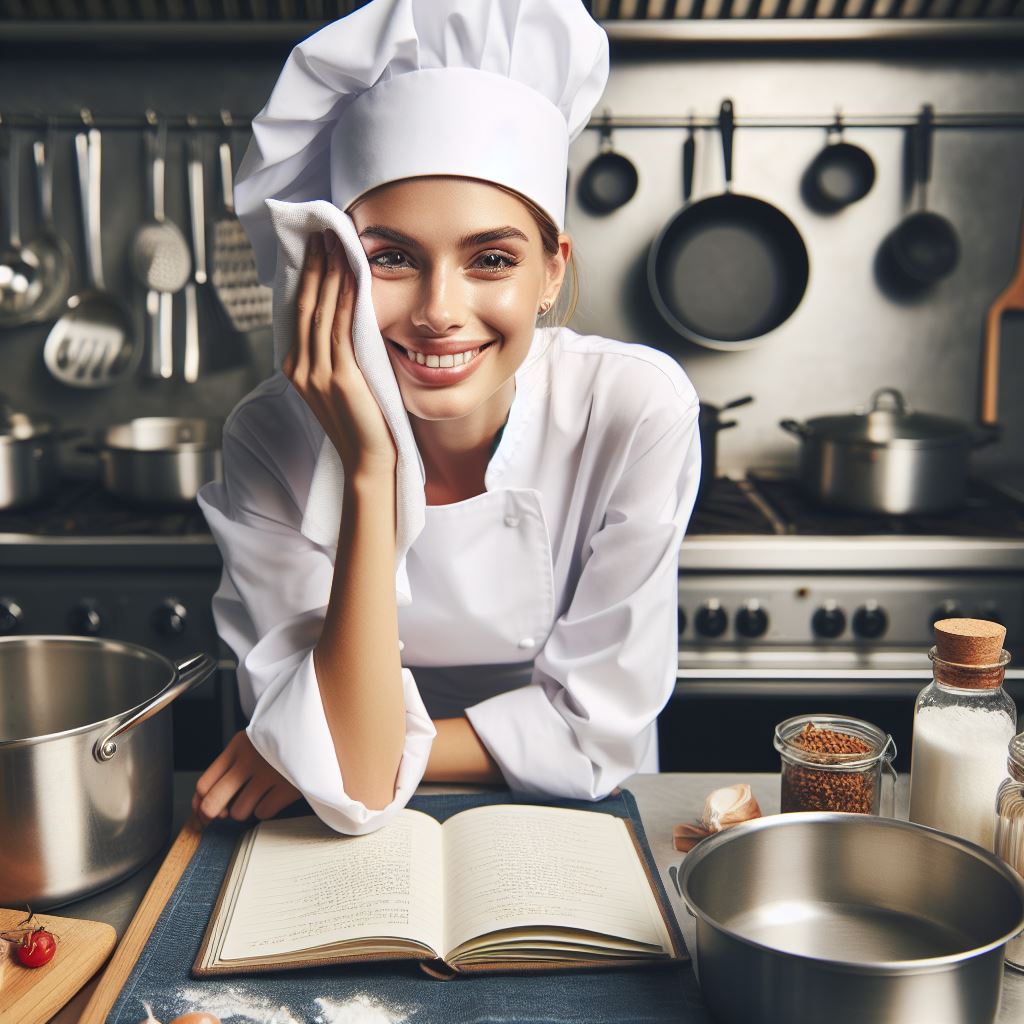Introduction
The UK has witnessed the rise of mixology, which is more than just a passing trend.
In recent years, mixology has gained popularity and recognition as a sophisticated and artistic field.
Mixology is the art and science of creating innovative and expertly crafted cocktails.
It involves a combination of technical skill, creativity, and a deep understanding of flavors and ingredients.
What sets mixology apart from traditional bartending is the attention to detail and the level of craftsmanship involved in creating each drink.
Mixologists are like alchemists, concocting unique and balanced creations that delight the senses.
The rise of mixology can be attributed to various factors.
Consumers have become more discerning and adventurous in their taste preferences, seeking out new and exciting experiences.
Mixology provides an avenue for bartenders to push boundaries and craft exceptional drinks that cater to these adventurous palates.
The emergence of craft spirits and artisanal ingredients has played a significant role in shaping the mixology scene.
Craft distilleries and small-batch producers have introduced a diverse range of spirits and ingredients that are essential for creating innovative cocktails.
Moreover, the increased interest in cocktail culture and the rise of cocktail bars as social destinations have fueled the popularity of mixology.
People are drawn to the immersive experience that mixology offers, where they can witness skilled bartenders utilizing techniques such as homemade infusions, smoking, and molecular gastronomy to create visually stunning and flavorful drinks.
In short, the rise of mixology in the UK goes beyond being just a passing trend.
It reflects the growing appreciation for the artistry and innovation that goes into crafting exceptional cocktails.
Personalized UK Career Consulting
Receive tailored career guidance designed just for you. Get actionable steps and expert support to boost your career in 1-3 days. Take control of your career now.
Get StartedMixology has transformed the drinking culture, elevating it to a more sophisticated and experiential level.
Definition of Mixology
What mixology is and how it differs from traditional bartending
Mixology is the art and science of creating cocktails, and it goes beyond traditional bartending.
Mixologists focus on creativity, craftsmanship, and using high-quality ingredients to craft unique and innovative drinks.
Unlike traditional bartending, mixology puts a strong emphasis on the artistry and precision of cocktail making.
In mixology, bartenders are seen as artists who can create extraordinary flavor combinations and visually stunning drinks.
How it differs from traditional bartending
Use of fresh and seasonal ingredients
One key difference between mixology and traditional bartending is the use of fresh and seasonal ingredients.
Mixologists prioritize using fresh fruits, herbs, and homemade syrups to create a more vibrant and flavorful cocktail.
This dedication to freshness adds a level of sophistication to the overall drinking experience.
Attention to detail in terms of presentation
Another aspect that sets mixology apart is the attention to detail in terms of presentation.
Mixologists take pride in creating visually appealing cocktails that engage all the senses of the drinker.
The use of garnishes, unique glassware, and ice sculptures adds a visual and interactive element to the cocktail.
In mixology, the goal is not just to create a drink; it’s to create a complete experience for the customer.
Mixologists are constantly experimenting with new techniques and flavors to push the boundaries of what is possible.
They are always on the lookout for unique ingredients and innovative tools to enhance their creations.
Your Dream Job Starts with a Perfect CV
Get a tailored CV and cover letter that captures your unique strengths and stands out in your industry. Let us help you make an unforgettable first impression.
Get StartedThe craft cocktails created by mixologists are often seen as a form of art and are highly sought after.
The rise of mixology in the UK can be attributed to the changing preferences of consumers.
People are becoming more adventurous in their drinking choices and are seeking out new and exciting flavors.
Mixology allows bartenders to cater to these evolving tastes and provide customers with memorable experiences.
Many bars now have dedicated mixology stations and offer a range of specialty cocktails to attract a wider customer base.
The rise of mixology has sparked a renewed interest in cocktail culture and has given birth to a new generation of cocktail enthusiasts.
Cities like London and Manchester are at the forefront of this mixology revolution, with a thriving cocktail scene.
In fact, mixology is not just a passing trend in the UK; it has become a fundamental part of the drinking culture.
With its emphasis on creativity, craftsmanship, and innovation, mixology has redefined the art of cocktail making and elevated it to new heights.
Read: Crafting Cocktails: Skills Every UK Bartender Needs
Historical Context
The origins of mixology and its growth in popularity worldwide
Mixology, the art of creating cocktails, has a rich history and has grown immensely in popularity worldwide.
Dating back to ancient times, mixology has evolved and become an integral part of our social culture.
Mixology has its roots in ancient civilizations, with evidence of early drink mixing found in Mesopotamia and Egypt.
These early mixologists used herbs, spices, and fruits to create flavorful concoctions.
Optimize Your LinkedIn for Success
Boost your LinkedIn profile with a professional bio, keyword-rich headline, and strategic recommendations that attract recruiters. Stand out from the crowd and get noticed.
Optimize NowThe craft of mixology gained momentum in the late 18th century during the cocktail renaissance.
Mixologists like Jerry Thomas, known as the “father of American mixology,” introduced innovative techniques and recipes, elevating the art form.
The United Kingdom has played a significant role in the development of mixology.
The growth in popularity can be attributed to several influential mixologists who revolutionized the craft.
Examples of influential mixologists in the UK
Harry Craddock
One notable figure is Harry Craddock, a British-born bartender who made a remarkable contribution to mixology during the Prohibition era.
Craddock worked at the iconic Savoy Hotel in London and penned the renowned cocktail guide, “The Savoy Cocktail Book.”
Dick Bradsell
Another influential mixologist is Dick Bradsell, often referred to as the “cocktail king.”
He is credited with creating iconic modern cocktails such as the Espresso Martini and the Bramble.
Bradsell’s innovative creations had a lasting impact on the UK’s mixology scene.
Tony Conigliaro
Tony Conigliaro, a pioneer in molecular mixology, is another name that cannot be overlooked.
His avant-garde approach led to the creation of unique and visually stunning cocktails, pushing the boundaries of traditional mixology.
The popularity of mixology in the UK continues to soar due to the efforts of these influential pioneers who have inspired a new generation of mixologists.
Today, we witness a mixology revolution with bars and speakeasies popping up all over the country.
London, in particular, has become a hub for mixology enthusiasts, attracting both locals and tourists with its vibrant cocktail scene.
The city houses numerous award-winning bars where expert mixologists showcase their creativity and craftsmanship.
Notable establishments such as The American Bar at The Savoy, Nightjar, and Happiness Forgets have gained international recognition for their exceptional cocktails.
These venues emphasize the importance of fresh ingredients, precise measurements, and attention to detail.
The rise of mixology in the UK is not just a passing trend but a cultural shift.
It has become an immersive experience, encompassing not only the taste but the visual presentation and the storytelling behind each cocktail.
The cocktail culture has transcended the bar scene, influencing restaurants, hotels, and even home bartending.
Today, there are cocktail masterclasses, cocktail festivals, and competitions that celebrate the art of mixology.
In essence, mixology has a long and storied history and has grown exponentially in popularity worldwide.
The UK, with its influential mixologists and thriving cocktail scene, has played a significant role in the growth and evolution of the craft.
The rise of mixology is more than a trend; it is a cultural phenomenon that continues to captivate cocktail enthusiasts around the globe.
Read: Top Bartending Schools in the UK: Your Best Choices
The Role of Mixologists
Mixologists are professionals who possess a set of unique skills and responsibilities that contribute to the creation of unique and innovative cocktails.
Their role is of utmost importance in the world of mixology.
Responsibilities of a Professional Mixologist
- Knowledge and expertise: A mixologist must have a deep understanding of various spirits, liqueurs, and mixers. They should possess extensive knowledge about the origins, characteristics, and flavor profiles of different ingredients.
- Creativity: Mixologists are required to be creative in developing new cocktail recipes.
They should have a keen sense of taste and an ability to experiment with different ingredients, flavors, and techniques to create balanced and exceptional drinks. - Menu development: Mixologists play a vital role in creating cocktail menus for bars and restaurants. They need to curate a selection of drinks that align with the establishment’s theme or target audience, ensuring a well-balanced offering of classic and innovative concoctions.
- Presentation and garnishing: Apart from mixing ingredients, mixologists focus on the overall presentation of cocktails. They understand the importance of visual appeal and garnishing to enhance the sensory experience for customers.
- Efficient service: Mixologists should be well-versed in providing excellent customer service.
They understand the importance of engaging with customers, taking their preferences into consideration, and recommending suitable cocktails based on their tastes. - Quality control: A professional mixologist ensures consistent quality by accurately measuring ingredients, adhering to recipes, and maintaining the highest standards of hygiene and cleanliness behind the bar.
Importance of Mixologists in Creating Unique and Innovative Cocktails
- Expert flavor profiles: Mixologists possess a deep understanding of flavors and can create innovative cocktails by combining different taste profiles in unique ways. This expertise sets them apart from regular bartenders.
- Craftsmanship: Mixologists showcase their craftsmanship by skillfully combining various ingredients, utilizing specialty techniques like muddling, infusions, and flaming, to create one-of-a-kind drinks that go beyond traditional mixology.
- Trendsetting: Mixologists often set new trends in the industry by experimenting with novel ingredients, techniques, and flavor combinations. They inspire other professionals to push the boundaries of mixology.
- Personalization: Mixologists have the ability to tailor cocktails to meet individual preferences.
They can adjust the sweetness, strength, or flavor profile of a drink, making it a more personalized experience for customers. - Brand building: Exceptional mixologists can become brand ambassadors, representing spirits companies or establishments. Their innovative creations and unique style attract customers and contribute to the success of the brands they represent.
- Enhancing customer experience: Mixologists contribute to creating a memorable and enjoyable experience for customers. Their expertise in crafting extraordinary cocktails adds value to dining and socializing experiences at bars and restaurants.
In general, mixologists play a crucial role in the rise of mixology in the UK.
With their responsibilities ranging from knowledge and expertise to menu development and presentation, their skills contribute to the creation of unique and innovative cocktails.
Their importance lies in their ability to elevate flavors, set trends, personalize drinks, and enhance the overall customer experience.
Mixologists are not just bartenders; they are artists who continuously push the boundaries of mixology, making it more than just a passing trend.
Read: A Day in the Life of a UK Bartender: Real Stories
The Evolution of Cocktail Culture in the UK
How the cocktail culture has evolved in the UK
Cocktail culture has come a long way in the UK, evolving from a simple mix of spirits and mixers to a sophisticated and artistic craft.
The rise of mixology has transformed the way people enjoy their drinks, turning it into an experience rather than just a means of intoxication.
The increased demand for high-quality cocktails and unique drinking experiences
One of the key factors that have contributed to the evolution of cocktail culture in the UK is the increased demand for high-quality cocktails.
Gone are the days when a simple gin and tonic would suffice. Consumers are now seeking innovative and unique drinking experiences that push the boundaries of traditional mixology.
The mixology scene in the UK has seen a surge in creativity, with bartenders experimenting with flavors, techniques, and presentation to create one-of-a-kind concoctions.
Mixologists are now regarded as artists, using their knowledge and skills to craft visually stunning and delicious cocktails.
Reasons behind the increased demand for high-quality cocktails
One of the reasons behind the increased demand for high-quality cocktails is the growing appreciation for artisanal and locally sourced ingredients.
Consumers are now more conscious of the origin and quality of the ingredients used in their drinks, preferring small-batch spirits and freshly squeezed juices over mass-produced alternatives.
The cocktail culture in the UK has also been influenced by the rise of craft distilleries.
With an increasing number of distilleries producing their own spirits, bartenders now have access to a wide range of unique and flavorful ingredients to incorporate into their cocktails.
This has given rise to a new level of creativity and customization in the mixology scene.
Another aspect of cocktail culture that has evolved in the UK is the trend of speakeasy-style bars.
These hidden establishments have gained popularity for their intimate and exclusive atmosphere, offering patrons a chance to experience a taste of nostalgia and old-world glamour.
The rise of these bars has further fueled the demand for high-quality cocktails and unique drinking experiences.
In addition to the increased demand for high-quality cocktails, the cocktail culture in the UK has also been shaped by the changing preferences of consumers.
More people are now seeking low-alcohol and alcohol-free options, driving the development of innovative and delicious mocktails.
Mixologists have risen to the challenge, creating complex and flavorful mocktails that can rival their alcoholic counterparts.
The evolution of cocktail culture in the UK has been a wonderful journey, transforming the way people enjoy their drinks.
From simple spirits and mixers to elaborate and artistic creations, mixology has become more than just a trend.
It has become an integral part of the UK’s drinking culture, offering consumers a unique and exciting way to indulge in their favorite libations.
Read: How to Become an Event Planner in the UK
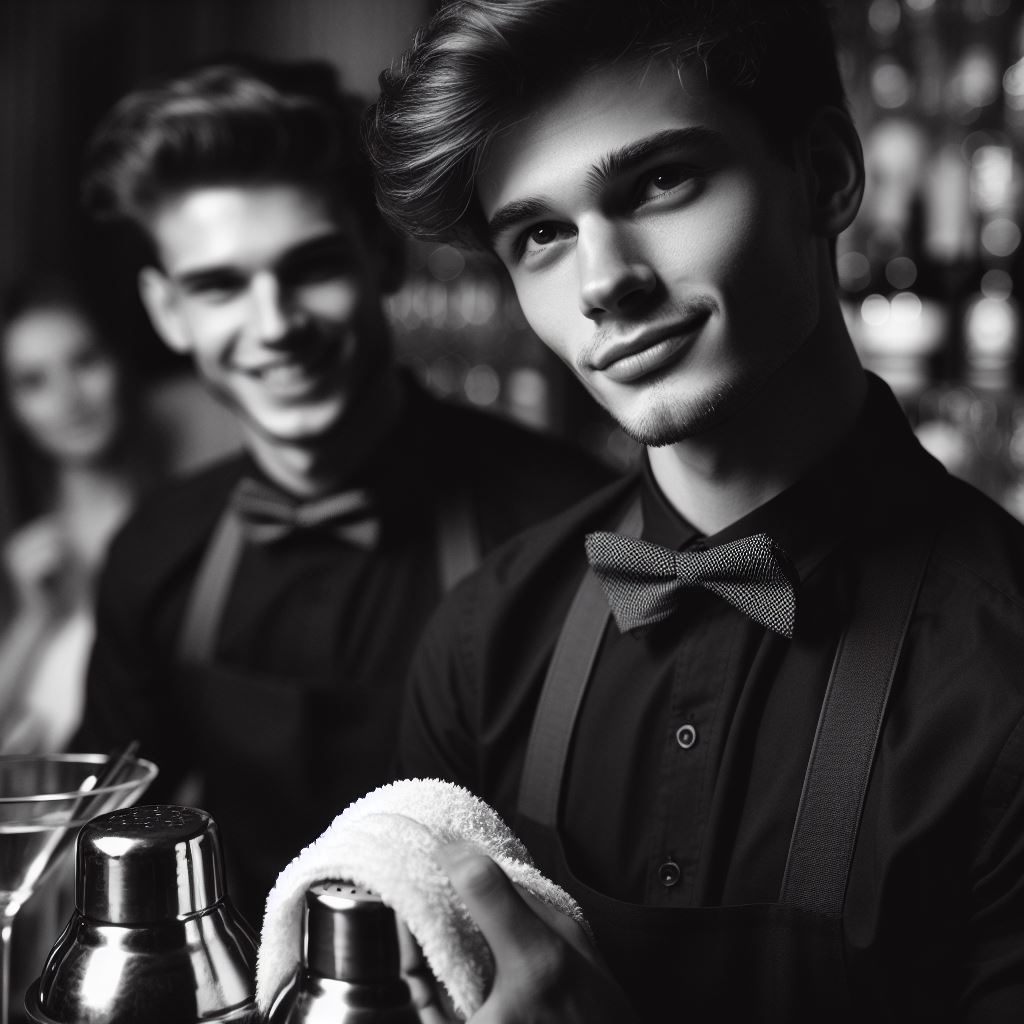
Impact on the Hospitality Industry
Over the past decade, the art of mixology has taken the UK by storm, making a significant impact on the hospitality industry.
With the rise of cocktail bars and the integration of mixology in restaurants, this trend has revolutionized the way drinks are prepared and served.
How mixology has impacted the hospitality industry in the UK
Enhanced Customer Experience
Mixology has transformed the way customers perceive and enjoy their drinks.
With skillfully crafted cocktails, bartenders engage customers in a sensory experience, creating a lasting impression and increasing customer satisfaction.
Increased Revenue
The incorporation of mixology has proved to be a lucrative business strategy for the hospitality industry.
Unique and creative cocktails attract discerning customers who are willing to pay a premium price for an exceptional drinking experience, boosting revenue for establishments.
Competitive Advantage
Mixology has become a defining factor in the hospitality industry, setting establishments apart from their competitors.
The ability to offer creative and innovative drinks attracts a broader customer base, improves brand reputation, and fosters customer loyalty.
Job Creation
The rise of mixology has created job opportunities for aspiring bartenders and mixologists.
With the demand for skilled professionals in this field, more employment opportunities have emerged, contributing to the growth of the hospitality industry.
The rise of cocktail bars and the integration of mixology in restaurants
Popularity of Cocktail Bars
Cocktail bars have experienced a surge in popularity over the past decade.
These specialized establishments cater to customers seeking a unique and premium drinking experience.
Mixologists in cocktail bars have perfected the art of creating bespoke cocktails to satisfy every palate.
Creative Menus
The integration of mixology in restaurants has enabled chefs and bartenders to collaborate in developing creative menus.
By combining flavors and ingredients, they offer customers a harmonious blend of food and drink experiences that complement each other, enhancing the overall dining experience.
Training and Skill Development
The rise of mixology has prompted establishments to invest in training programs for their staff.
Bartenders are now expected to possess extensive knowledge of spirits, techniques, and presentation skills, in addition to their mixology expertise, creating a more skilled and professional workforce.
Unique Selling Point
Restaurants have recognized the value of mixology as a unique selling point.
By incorporating mixology into their offerings, they attract a broader customer base, including those seeking a complete dining experience with carefully crafted drinks that complement the flavors of the food.
Collaboration with Mixologists
Restaurants are increasingly partnering with renowned mixologists to curate exclusive cocktail menus.
These collaborations not only showcase the establishment’s commitment to mixology but also create buzz and attract customers who are eager to sample the creations of renowned mixologists.
In brief, the rise of mixology has had a significant impact on the hospitality industry in the UK.
From enhancing the customer experience and increasing revenue to creating job opportunities and providing a competitive advantage, mixology has become an integral part of the industry.
With the rise of cocktail bars and the integration of mixology in restaurants, this trend is here to stay, revolutionizing the way drinks are prepared and served in the UK.
Training and Education
When it comes to the world of mixology, training and education play a crucial role in developing the skills and knowledge needed to be successful in this industry.
Aspiring mixologists have various opportunities to pursue training and education to enhance their craft.
The training and education opportunities available for aspiring mixologists
Bartending Schools
One of the most popular options for aspiring mixologists is attending bartending schools.
These schools offer comprehensive programs that cover the fundamentals of mixology, cocktail techniques, and customer service skills.
Attending a bartending school allows individuals to learn from experienced professionals who can provide guidance and hands-on training.
This type of education can be valuable in building a strong foundation and understanding the art of mixology.
Online Courses and Certifications
In today’s digital age, online courses and certifications have become increasingly popular.
Many platforms offer virtual mixology courses that can be accessed from anywhere at any time.
These online courses cover a wide range of topics, from basic cocktail recipes to advanced mixology techniques.
They often include video tutorials, interactive quizzes, and access to virtual communities for networking and support.
Apprenticeships and Mentorships
Another way aspiring mixologists can gain practical experience and knowledge is through apprenticeships and mentorships.
Working alongside experienced mixologists allows individuals to learn directly from professionals in a real-world setting.
During apprenticeships and mentorships, individuals can observe and participate in the day-to-day operations of a bar or restaurant.
This hands-on experience is invaluable in developing skills, learning new techniques, and understanding the inner workings of the industry.
Industry Events and Competitions
Attending industry events and competitions is an excellent way for mixologists to stay updated with the latest trends and innovations.
These events often feature masterclasses, workshops, and presentations by industry experts.
Participating in mixology competitions also provides an opportunity for aspiring mixologists to showcase their skills, gain recognition, and network with professionals in the field.
These competitive events can be a great way to learn from others and get feedback on one’s own creations.
The importance of continuous learning and staying updated with trends
Continuous learning and staying updated with the latest trends are crucial for mixologists looking to excel in their careers.
The world of mixology is constantly evolving, and it is essential to adapt and learn new techniques to stay ahead of the game.
Attending workshops, seminars, and industry conferences can provide valuable insights into emerging trends, new ingredients, and innovative techniques.
Engaging with other mixologists and professionals in the field through networking events and online communities can also foster learning and knowledge sharing.
Furthermore, mixologists can stay updated by regularly experimenting with new ingredients, flavors, and cocktail recipes.
This allows them to refine their skills, develop their own unique style, and offer customers exciting and innovative experiences.
In review, aspiring mixologists have various training and education opportunities available to enhance their skills and knowledge.
Whether through bartending schools, online courses, apprenticeships, or industry events, continuous learning and staying updated are essential in this ever-evolving field.
By investing in training and education and staying informed about the latest trends, aspiring mixologists can position themselves for success and contribute to the rise of mixology in the UK.
The Future of Mixology in the UK
The future of mixology in the UK holds immense possibilities and potential for growth.
As the demand for craft cocktails continues to rise, there are several developments and innovations in the field that we can expect to see in the coming years.
What the future holds for mixology in the UK
Elevation of the Drinking Experience
Mixologists will strive to create unique and memorable experiences for their customers.
From sensory cocktail presentations to interactive drink-making workshops, the focus will be on engaging all senses.
Enhanced Use of Technology
Technology will play a significant role in shaping the future of mixology.
From digital menus that allow customers to explore cocktail recipes to virtual reality experiences that transport them to different cocktail bars around the world, technology will revolutionize the way we experience cocktails.
Sustainability and Conscious Consumption
With a growing awareness of environmental issues, the future of mixology will prioritize sustainability.
Bartenders will work towards reducing waste, utilizing locally sourced ingredients, and incorporating eco-friendly practices into their craft.
Fusion of Global Flavors
As mixology continues to evolve, cocktail enthusiasts can expect an exciting fusion of global flavors.
Bartenders will experiment with unique ingredients from different cultures, creating innovative and boundary-breaking cocktails.
Health and Wellness Cocktail Movement
As consumers become more health-conscious, there will be a rise in the demand for cocktails that offer health benefits.
Mixologists will incorporate superfoods, herbs, and natural remedies into their creations, providing a balance between indulgence and wellness.
Collaboration with Other Industries
Mixology will extend its reach beyond the bar, collaborating with other industries to create unique experiences.
Bartenders may team up with chefs to develop cocktail and food pairing menus or work with fashion designers to create themed cocktail experiences.
The Rise of Non-Alcoholic Cocktails
The demand for non-alcoholic cocktails, or “mocktails,” will see exponential growth.
Mixologists will focus on creating sophisticated and flavorful non-alcoholic options that cater to a wider audience, including non-drinkers and designated drivers.
Personalized and Customized Cocktails
With advancements in mixology techniques and technology, customers can expect personalized and customized cocktails tailored to their preferences.
From choosing their base spirit to selecting specific flavors and ingredients, patrons will have more control over their drink choices.
Pop-Up and Experimental Cocktail Bars
Pop-up and experimental cocktail bars will become more prevalent, offering temporary and unique drinking experiences.
These establishments will push the boundaries of mixology, encouraging both the bartenders and customers to explore new flavors and techniques.
Recognition of Mixology as an Art Form
Mixology will continue to gain recognition as a respected art form.
Bartenders will be celebrated for their creativity and expertise, and the profession will become increasingly competitive and prestigious.
The future of mixology in the UK is promising, with an emphasis on innovation, sustainability, and customer-centric experiences.
As the field continues to evolve, we can expect to see exciting advancements that will elevate the cocktail industry to new heights.
So, raise your glass and toast to the exciting future of mixology in the UK!
Conclusion
The rise of mixology in the UK has been more than just a trend. It has revolutionized the beverage industry in the country, bringing creativity, innovation, and sophistication to the art of making cocktails.
Mixology has become a significant aspect of the UK’s vibrant bar scene, attracting both cocktail enthusiasts and professionals.
It has led to the opening of numerous cocktail bars and the establishment of mixology as a respected profession.
The influence of mixology goes beyond the bar scene, as it has also impacted the hospitality industry, with hotels and restaurants incorporating craft cocktails into their menus.
This trend showcases the demand for high-quality and unique drink experiences by consumers.
The rise of mixology has also resulted in the resurgence of classic cocktails and the introduction of new and exciting flavors and ingredients.
It has encouraged bartenders to experiment, push boundaries, and craft their own signature drinks.
Mixology is not just a passing trend; it has firmly established itself as an integral part of the UK’s beverage culture.
It has elevated the drinking experience, providing consumers with carefully crafted and memorable cocktails.
With its continued influence and growing popularity, mixology is here to stay, shaping the future of the beverage industry in the UK.
[E-Book for Sale]
500 Cutting-Edge Tech Startup Ideas for 2024 & 2025: Innovate, Create, Dominate
$19.99 • 500 Tech Startup Ideas • 62 pages
You will get inspired with 500 innovative tech startup ideas for 2024 and 2025, complete with concise descriptions to help you kickstart your entrepreneurial journey in AI, Blockchain, IoT, Fintech, and AR/VR.

